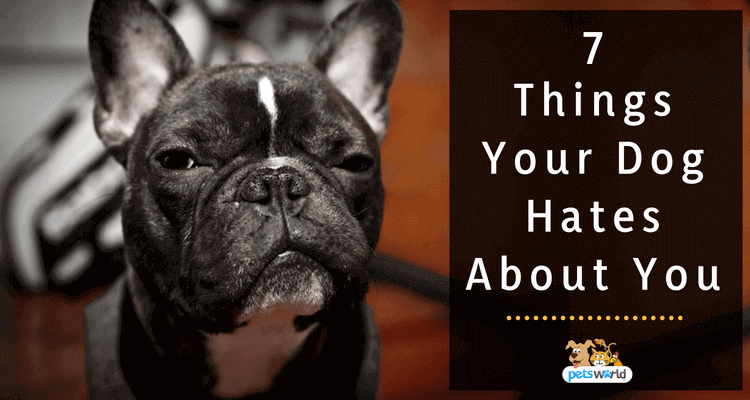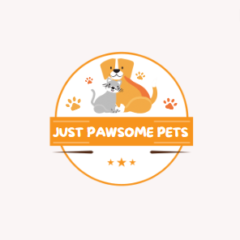7 Things Your Dog Hates About You
By admin / December 3, 2022 / No Comments / Uncategorized

Unknowingly, we do few things that may irk our furballs or confuse them; our actions in some cases may be sending the wrong signals to the dog. Being aware of wrong ways that are confusing your dog will fetch you brownie points in crafting a lifelong bond with your dog.
1) Confusing the dog with different rules for its same behavior
It’s important to set limits and rules for the pet dog. But what’s more important is to adhere to them. Dogs enjoy a set pattern of do’s & don’ts, in simple words a stable routine day in and day out. Many times pet owners make the mistake of approving a certain dog behavior and then reprimanding it for the same move another time. This not just perplexes the pet but also creates feelings of stress and confusion. Your pet wants to get a taste of your food & you offer it a crumb or two; the next day you have a friend over for lunch and the pet pleas with hungry eyes to win a tidbit in return, but you reprimand its begging as being objectionable. It is you at fault here, not the dog.
2) Different commands for a single reaction by the dog
It is best to stick to a single word that will correspond to a command by you for your dog to obey. Using different words that mean the same thing will yet again confuse the pet in the given situation. It will not be able to produce the desirable response to your order. Therefore the entire human family of the dog must use a common single word for each command it sends out to the latter.
Also dogs don’t perceive human language in the same way as we do. They are better at picking upon signals sent through our body language. It’s best to link an appropriate physical behavior/body posture to the verbal cue/keyword for a successful & obedient response from the canine.
3) Expecting your dog to act like a civilized human
The dog will enjoy chewing on your slippers or some furniture, bark loudly, sniff around, dig your lawn; all of this comes naturally to it. It is only reverting to what nature intended it to be. It does not understand many of your concepts such as cleanliness or protecting an expensive item from damage. It’s best to show patience towards the dog. Do not punish or yell at the dog for its unwanted behaviors.
4) Tightly hugging the Pet
Humans interpret hugs as an expression of showing one’s affection, love and warmth to another individual. But it entirely holds a very different connotation in the canine world. Dogs perceive hugs as exertion of authority/supremacy. A dog will show its domination by putting its paw onto the back of another canine. Rarely will you find a dog that enjoys or looks forward to hugs from its human family pack. Sometimes a pet dog may tolerate being hugged by only a particular family member and feel completely afraid of the same action when attempted by another human. It is best to watch out for signs that spell out discomfort when it comes to dogs and hugs. Escaping an eye contact, trying to move away, bending its face in the opposite direction as yours, keeping its mouth sealed or licking its lips and pulling its ears backwards are indicative of a nervous body language. In case you notice your dog is displaying any such reaction, be sure it is anxious due to your squeeze.
5) Disturbing your dog’s sleep
If you ever need to wake up your dog from its deep slumber go easy and slow with the action. Tenderly touch or speak to it to awaken the pet. A dog can easily be shocked at a sudden/impulsive touch while it’s asleep. Especially a dog whose hearing abilities has been weakened due to age or other reasons may get very scared when wakened up abruptly; as it is unable to hear sounds such as footsteps nearing it. The best bet would be to allow a dog to wake up on its own, naturally! If you have children at home make sure you advise them on the same.
6) Leaving your pet alone for long hours
Are you a guilty pet parent that is not able to spend as much time with its dog? A dog left all alone at home for an extended period of 9 to 10 hours daily may develop concerning issues such as separation anxiety and negative behaviors such as chewing, extreme barking or defecating/urinating inside the house. The fact is dogs are designed by nature to live in groups and when you adopt a canine, you are naturally perceived by the latter as its pack member. Dogs like to socialize with its human family. If leaving the dog alone at home for a long period becomes inevitable, you must ask a friend or a relative to drop by each day and spend some time with the dog or take it for a stroll in the neighborhood. Sometimes an animal loving neighbor may be more than willing to offer help by looking after the dog at his/her home for the specific duration of the day.
7) Not providing the dog enough mental/physical stimulation & a chance to explore nature
A dog entirely depends upon you for its daily dose of exercise, fun with toys and games. Taking the dog each day for walks in and around the neighborhood is important (as a general rule a 15 minute stroll twice daily is good for most dog breeds). But did you know that allowing the pooch to absorb and explore the environment is equally important. Dogs love to sniff around to detect peculiar smells and presence of exciting things along their path. As eyes are to human beings, a nose is to a dog. Smelling is an important activity for your dog to understand the world around it. Do not rush back home after the dog has relieved itself, give it time to take in the natural world by allowing it to breathe in various places for some time each day. You can also introduce the pet to a new walking track every now and then to add newness to its routine.
Article Resource:
http://iheartdogs.com/
http://moderndogmagazine.com/

